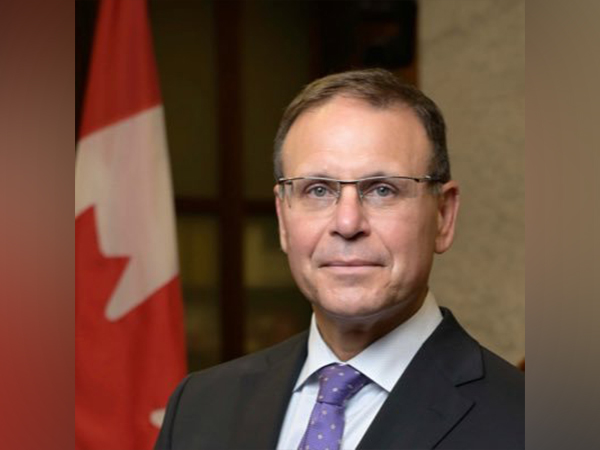The loyalty of the law in Beijing
Mar 24, 2022

New Delhi [India], March 24 : Independence of the judiciary has been prominent in our public discourse. Our constitution provides several measures to ensure that the judicial mechanisms are free from interference by the executive.
Several high profile controversies in recent years were discussed in terms of the effect they may have on judicial independence - the very fact being a hallmark of a robust democratic civic space.
But not enough attention is accorded to preserving the independence of the legal profession which is an equally important part of upholding the rule of law. Lawyers are the medium through which citizens access the courts.
It is also lawyers who advise citizens of their rights under the law and make them aware that they can approach courts for justice. An independent judiciary would be meaningless if the legal profession is not also independent.
This principle is recognized internationally. Rule 3 of the International Code of Ethics of the International Bar Association (IBA) mandates that "Lawyers shall preserve independence in the discharge of their professional duty".
IBA International Principles on Conduct for the legal profession adopted in 2011 further explain this concept of independence by emphasizing that "[t]he requirement of independence calls upon the individual practicing lawyer, government and civil society to give priority to the independence of the legal profession over personal aspirations and to respect the need for an independent legal profession."
In most modern democracies we are used to some common principles around which the legal profession is organized.
First, a professional association or council, which has a certain degree of independence from government, regulates the educational standards and other qualifications required to be met to be admitted to the legal profession.
Secondly, the code of conduct, forms and particulars of practice conventions, gradations within the profession if any, are all prescribed by the professional body and not by the government.
Thirdly, the process by which a lawyer can be disbarred from practice is administered by the professional body.
The underlying theme that we take for granted is that the practice of law is independent of government interference or control. But this may not always be true.
There is an old joke about underlining the plight of Human Rights lawyers in China. Having naturally found himself ensconced in a prison, a political prisoner decides to seek help. "I need to speak to a human rights lawyer," the prisoner says. His cellmate responds "You've come to the right place then"!
The humour in this joke is quite dark if you consider that Chinese lawyers have been subjected to incarceration en masse with as many as 200 being detained in one swoop in 2015.
Other such actions by the Chinese government have also been noted by the United Nations Human Rights Council. Government control of the legal profession in China goes far beyond penal recriminations against some Human Rights lawyers.
Though the Deng years reversed the Mao era de-professionalization of law, the 1980 Provisional Regulation on Lawyers of the People's Republic of China defined lawyers as "workers of the state".
The pervasive state control of the legal profession in China had eased over the years and had been brought under a professional body - The All-China Lawyer's Association.
However, a lawyer can still lose her right to practice law for having political views different from that of the government. One prominent case that has received some international attention of late is that of Chang Weiping, who in 2020 lost his license to practice law after attending a gathering of activists in the city of Xiamen.
Recent statements by Chairman Xi Jinping have roused further alarm. Xi has openly called for ensuring "political loyalty" from lawyers by giving them "political guidance".
He also seeks to weaponize the legal profession and is of the view that China needs to "arm itself with better laws and better lawyers for international struggle". Xi was particular about protecting Chinese interests in the Belt and Road Initiative.
Such pronouncements give rise to justified concerns about rule of law in China. Interference in the legal profession will not only be in the sphere of human rights but also the commercial sphere.
Lawyers across the democratic world do not hesitate before taking up cases against their government, even on behalf of a foreign company.
They are secure in their belief that their invocation of the law will not be seen as an act against their country but as an act in furtherance of the rule of law in their country. A "politically loyal" legal profession would not be able to offer support against a transgressing government in the same way.
Disclaimer: The author of this opinion piece is Vikram Hegde, who is an Advocate on Record and is a gold medallist from the National Law School of India University, Bangalore. He practices before the Supreme Court of India.




















